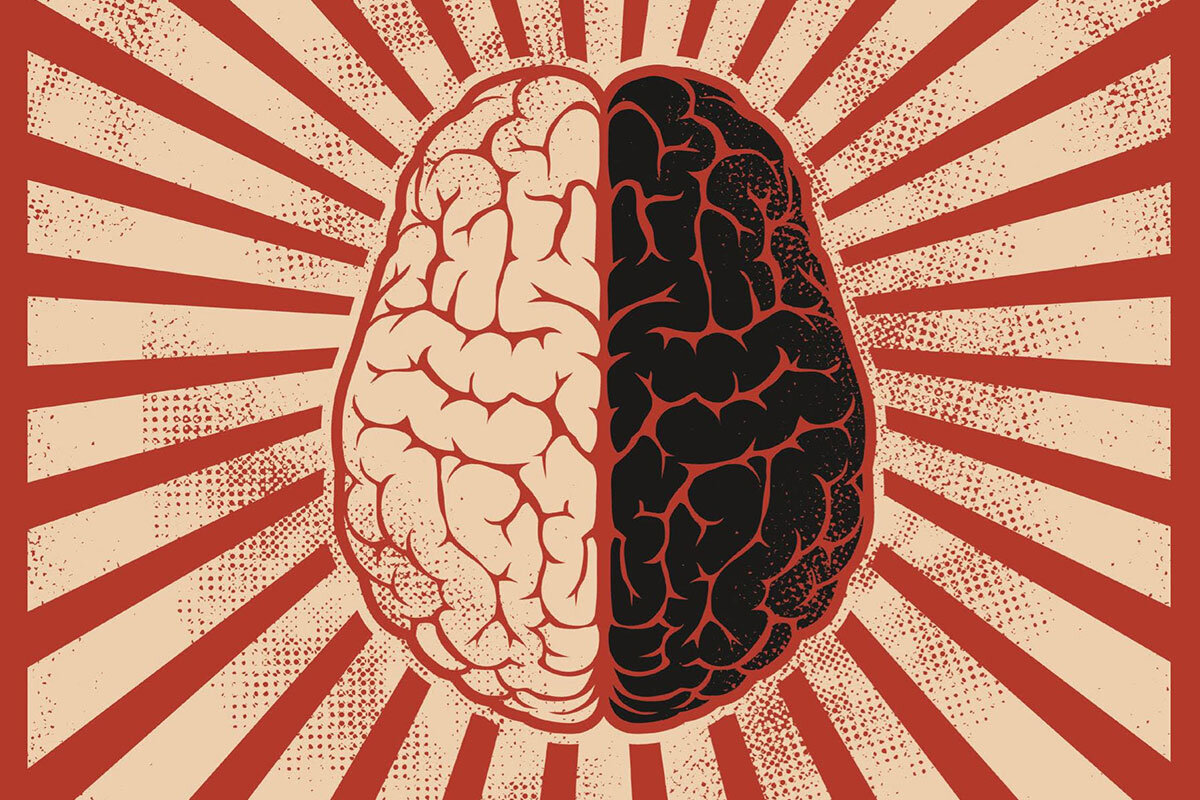It is significant, for example, that one of the most prominent features of the psychological landscape that Freud encountered in late nineteenth-century Vienna were the neuroses – which, as Kovel notes, Freud saw as being entirely continuous with ‘normal’ development in modern societies – with much of these, he adds, being rooted in our modern experience of alienation. ‘Neurosis,’ Kovel says, ‘is the self-alienation of a subject who has been readied for freedom but runs afoul of personal history.’
It was of course Marx who was the great analyst of alienation, showing how capitalist economics generates alienation as part of its very fabric or structure – showing how, for instance, alienation gets ‘lost’ or ‘trapped’, embodied, in products, commodities – from the obvious examples (such as Nikes made in sweatshops, and sweatshops embodied in Nikes) – to a wider and much more pervasive sense that the whole system of production and creation is somehow alienating.
As Pavon Cuellar remarks, ‘Marx was the first to realise that this alienation actually gets contained and incarnated in things – in “commodities”‘ (Marxism and Psychoanalysis). These ‘fetishised’ commodities, he adds, seem to retain and promise to return, when consumed, the subjective-social part lost by those alienated while producing them: ‘the alienated have lost what they imagine [or hope] to find in what is fetishised.’
This understanding of alienation is really the core issue for Marx. People probably know him today for his theories of capital – how issues of exploitation, profit, and control continually characterise and resurface in capitalism – but for me the key concern of Marx, and one that is constantly neglected, or misunderstood, is his view on the centrality and importance of human creativity and productivity – man’s ‘colossal productive power’ as he calls it – exactly as it was in fact for William Blake, slightly earlier in the century.
Marx refers to this extraordinary world-transformative energy and agency as our ‘active species-life’, our ‘species-being’ – our ‘physical and spiritual energies’. But these immense creative energies and transformative capacities are, he notes, under the present system, immediately taken from us and converted into something alien, objective, enslaving, fetishised.
RESTRUCTURING DESIRE
The image he evokes is of mothers giving birth – another form of labour perhaps – with the baby immediately being taken away and converted into something alien, something doll-like — a commodity. He considers what effect that must have on the mother’s spirit. This, for Marx, is the source of the alienation and unease, the sort of profound dislocation of the human spirit that characterises industrial capitalism. And as Pavon Cuellar shows, we can’t buy our way out of this alienation – by producing more toys, more dolls – because that’s where the alienation occurs, and is embodied and generated.
Indeed, consumerism and materialism are themselves widely recognised today as key drivers of a whole raft of mental health problems, from addiction to depression. As George Monbiot notes, ‘Buying more stuff is associated with depression, anxiety and broken relationships. It is socially destructive and self-destructive’. Psychoanalytic psychotherapist Sue Gerhardt has written very compellingly on this association, suggesting that in modern societies we often ‘confuse material well-being with psychological well-being’. In her book The Selfish Society she shows how successfully and relentlessly consumer capitalism reshapes our brains and reworks our nervous systems in its own image. For ‘we would miss much of what capitalism is about,’ she notes, ‘if we overlook its role in restructuring and marketing desire and impulse themselves.’
Another key aspect of capitalism and its impact on mental illness we could talk about of course is inequality. Capitalism is as much an inequality-generating system as it is a mental illness producing system. As a Royal College of Psychiatrists report noted: ‘Inequality is a major determinant of mental illness: the greater the level of inequality, the worse the health outcomes. Children from the poorest households have a three-fold greater risk of mental ill health than children from the richest households. Mental illness is consistently associated with deprivation, low income, unemployment, poor education, poorer physical health and increased health-risk behaviour.’
Some commentators have even suggested that capitalism itself, as a way of being or way of thinking about the world, might be seen as a rather ‘psychopathic’ or pathological system. There are certainly some striking correspondences between modern financial and corporate systems and individuals diagnosed with clinical psychopathy, as a number of analysts have noticed.
Robert Hare for instance, one of the world’s leading authorities into psychopathy and the originator of the widely accepted ‘Hare Checklist’ used to test for psychopathy, remarked to Jon Ronson: ‘I shouldn’t have done my research just in prisons. I should have spent some time inside the Stock Exchange as well.’ ‘But surely stock-market psychopaths can’t be as bad as serial-killer psychopaths?’ the interviewer asks. ‘”Serial killers ruin families,” shrugged Bob. “Corporate and political … psychopaths ruin economies. They ruin societies.”‘
PATHOLOGICAL INSTITUTIONS
These traits, as Joel Bakan brilliantly suggested in his book The Corporation, are encrypted into the very fabric of modern corporations – part of its basic DNA and modus operandi. ‘The corporation’s legally defined mandate,’ he notes, ‘is to pursue, relentlessly and without exception, its own self-interest, regardless of the often harmful consequences it might cause to others.’ By its own legal definition, therefore, the corporation is ‘a pathological institution’, and Bakan helpfully lists the diagnostic features of its default pathology (lack of empathy, pursuit of self-interest, grandiosity, shallow affect, aggression, social indifference) to show what a reliably disturbed patient the corporation is.
Why should all of these contemporary social and economic practices and processes generate so much illness, so many disorders? To answer this I think we need to look back at the wider Enlightenment project, and the psychological models of human nature out of which they emerged. Modern capitalism grew out of seventeenth century concepts of man as some sort of disconnected, discontinuous, disengaged self – one driven by competition and a narrow, ‘rational’ self-interest – the concept of homo economicus that drove and underwrote much of the whole Enlightenment project, including its economic models. As Iain McGilchrist notes, ‘Capitalism and consumerism, ways of conceiving human relationships based on little more than utility, greed, and competition, came to supplant those based on felt connection and cultural continuity.’
We now know how mistaken, and destructive, this model of the self is. Recent neuroscientific research into the ‘social brain’, together with exciting developments in modern attachment theory, developmental psychology, and interpersonal neurobiology, are significantly revising, and upgrading, this rather quaint, old-fashioned view of the isolated, ‘rational’ individual – and also revealing a far richer and more sophisticated understanding of human development and identity, through increased knowledge of ‘right hemisphere’ intersubjectivity, unconscious processes, group behaviour, the role of empathy and mentalisation in brain development, and the significance of context and socialisation in emotional and cognitive development.
As neuroscientist David Eagleman observes, the human brain itself relies on other brains for its very existence and growth—the concept of ‘me’, he notes, is dependent on the reality of ‘we’:
We are a single vast superorganism, a neural network embedded in a far larger web of neural networks. Our brains are so fundamentally wired to interact that it’s not even clear where each of us begins and ends. Who you are has everything to do with who we are. There’s no avoiding the truth that’s etched into our neural circuitry: we need each other.
Dependency is therefore built into the fabric of who we are as social and biological beings, hardwired into our mainframe: it is ‘how love becomes flesh’, in Louis Cozolino’s striking phrase. ‘There are no single brains,’ Cozolino observes, echoing Winnicott, ‘brains only exist within networks of other brains.’ Some people have termed this new neurological and scientific understanding of the deep patterns of interdependency, mutual cooperation, and the social brain ‘neuro-Marxism’ because of the implications involved.
Capitalism is, it seems, rooted in a fundamentally flawed, naive, and old-fashioned seventeenth-century model of who we are – it tries to make us think that we’re isolated, autonomous, disengaged, competitive, decontextualised – an ultimately rather ruthless and dissociated entity. The harm that this view of the self has done to us, and our children, is incalculable.
Many people believe, and are encouraged to believe, that these problems and disorders – psychosis, schizophrenia, anxiety, depression, self-harm – these symptoms of a ‘sick world’ (to use James Hillman’s terrific description) are theirs, rather than the world’s. ‘But what if your emotional problems weren’t merely your own?’, asks Tom Syverson. ‘What if they were our problems? What if the real problem is that we’re living in wrong society? Perhaps Adorno was correct when he said, “wrong life cannot be lived rightly”.’
The root of this ‘living wrongly’ seems to be because we live in a social and economic system at odds with both our psychology and our neurology, with who we are as social beings. As I suggest in my book, we need to realise that our inner and outer worlds constantly and profoundly interact and shape each other, and that therefore rather than separating our understanding of economic and social practices from our understanding of psychology and human development, we need to bring them together, to align them. And for this to happen, we need a new dialogue between the political and personal worlds, a new integrated model for mental health, and a new politics.
Rod Tweedy is an author and editor of Karnac Books, a leading independent publisher of books on mental health and therapy. His edited collection, The Political Self: Understanding the Social Context for Mental Illness, is published by Karnac.










